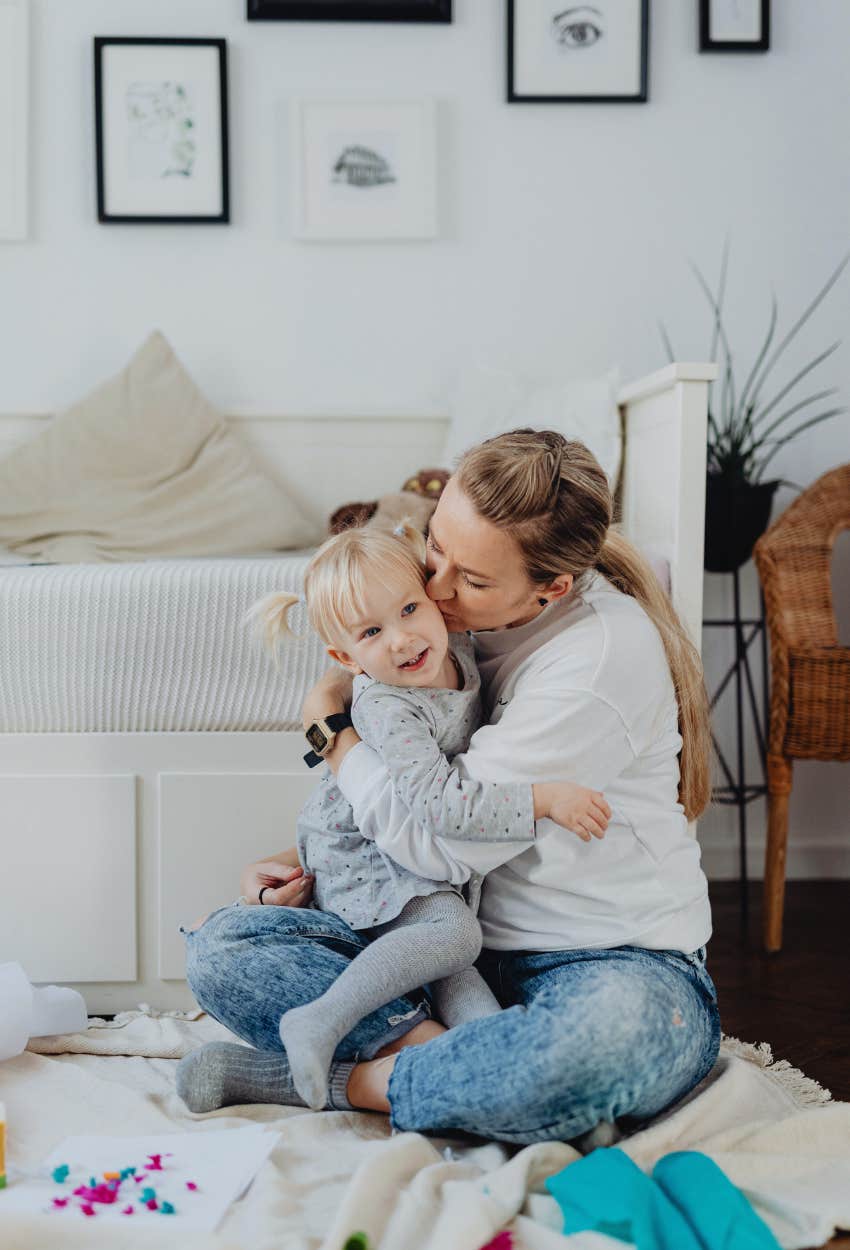Stay-At-Home Mom Blames Her ‘Girlboss’ Mother For Her Anxiety After Seeing How Well-Adjusted Her Own Kids Are
She questioned if she should confront her mom about her struggles with her anxiety.
 Natalia Lebedinskaia | Shutterstock
Natalia Lebedinskaia | Shutterstock A stay-at-home mom admitted that since having her own kids, she's started reflecting on how her working mother raised her and the traits seemingly passed down because of her mom's lifestyle.
Submitting her dilemma to Slate's parenting advice column, the unnamed woman questioned whether she should just learn to accept her "mother's limitations" or have a conversation with her about the attachment issues she inherited.
A stay-at-home mom blames her 'girlboss' mother for her anxiety after seeing how well-adjusted her own kids are.
"When I was growing up, my mother was the breadwinner while my father stayed home with us," the stay-at-home mom began. "It was always assumed that I, too, would be a “girlboss.” But I’ve had awful anxiety my whole life, and the idea of working outside the home overwhelmed me."
 Kaboompics.com | Canva Pro
Kaboompics.com | Canva Pro
She explained that it's been quite a long journey for her to accept that her worth wasn't tied to how much she earned at a job. Now, she's a stay-at-home mother to her two sons, and is currently expecting another baby. Her mother has been a huge help and support system through her first trimester, and she's equally as happy to see how well-adjusted her sons are and how well-adjusted her daughter will be once she's born. However, she admitted that there's still a problem.
Since noticing how well-adjusted her children are, she knows that it's because of her role at home. On top of that, she's been reading a bunch of parenting books about the importance of a healthy attachment in a child's first three years that establishes a healthy bond with the mom and a child's increased ability for emotional self-regulation. She admitted that the better her relationship with her kids, the angrier she's become with her mother.
From the time we're in the womb, we're absorbing our mother's nervous system.
A holistic healing expert named Sierra Alexandra explained in a TikTok video that from the moment we're in the womb, we're absorbing our mother's emotional state, stress levels, and the way that she regulates her own nervous system. Sierra pointed out that it happens through a process called "neuroception."
"Which is our body's ability to subconsciously detect safety or danger. If your mom was anxious, overwhelmed, or dysregulated, your nervous system likely wired itself to mirror that," Sierra said. "This could be why some of us feel anxious for no reason. Our bodies actually learned to be hypervigilant before we had the words to describe it."
This means that our emotions can show up as things like chronic stress and anxiety. If we feel unsafe in certain environments, we may often struggle to regulate our emotions, mixed in with this constant feeling of waiting for the other shoe to drop. However, Sierra maintained that even though we've inherited our mother's nervous system, it doesn't mean that it's set in stone.
"They are adaptable, they evolve, and we can start to teach it new baselines of safety," she added. One of the things that Sierra recommended to help with teaching our nervous systems new ways of safety was something called somatic tracking. She described it as being a practice that teaches your brain how to stop freaking out over bodily sensations.
"I started by picking a small sensation in my body. Nothing too crazy, like tension in my shoulders or a flutter in my stomach. And instead of immediately panicking or freaking out, I literally just observed that it was there and I allowed it to be there."
She admitted that since becoming a stay-at-home mother, she's noticed her anxiety has still been high.
"I’ve realized that my years of anxiety attacks and lying awake at night is because I didn’t have that secure attachment with my mother in my early years. Now, I have a great bond with my mother as an adult!" she pointed out. "We talk every day, and I absolutely could not have gotten through the first trimester of any of my pregnancies without her, much less the postpartum months. But I’m still resentful that my mother didn’t make me more of a priority so that I could be well-adjusted."
However, she's now questioning whether she should bring this issue up with her mother, and even though they have a good relationship now, she knows her mom doesn't understand her decision to be a stay-at-home mom. Receiving advice from Slate's columnist, she was encouraged to seek professional help through counseling, which would give her a space to work through her emotions and childhood without feeling pressured.
"Give yourself a lot of time to do this; no one in the history of the earth has ever fixed their mother-daughter relationship overnight," Slate's columnist stated. "You’ll know that you’re ready to talk to your mom once you’ve arrived at a place where you can feel a little compassion and empathy for the way she made a tough choice to balance her own needs with that of her children’s."
At the end of the day, no parent is perfect. They're simply trying their best with the tools they were given, especially parents from older generations. While it's important to validate your emotions and the attachment issues you may have received from your parents, it also doesn't hurt to extend a bit of grace as well.
Nia Tipton is a staff writer with a bachelor's degree in creative writing and journalism who covers news and lifestyle topics that focus on psychology, relationships, and the human experience.
